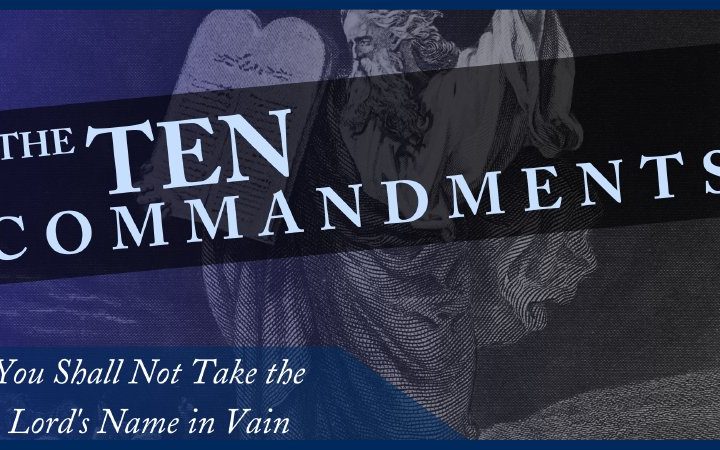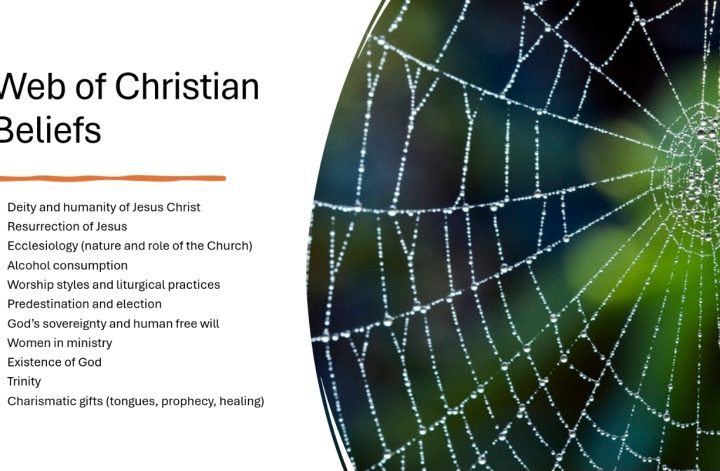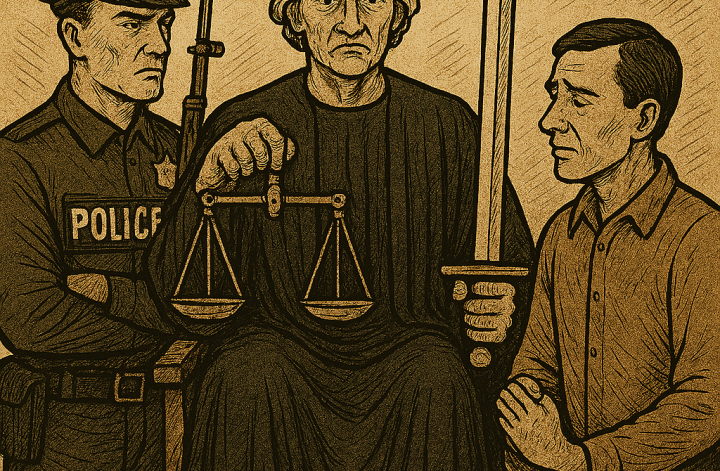In the first part of this series, we considered Calvinism’s handling of the passage under investigation. In this second part, we will explore a non-Calvinistic approach to exegeting Hebrews 6:4-6 that generates similar results as Calvinism does. John Lennox, an Oxford mathematician and philosopher, exemplifies this middling alternative in his Determined to Believe? Rather than relying on hotly debated ideas such as unconditional election and limited atonement, this approach premises the perseverance of the saints on Jesus’ assurance and his eternal high priesthood. John 6:38–39 says,
For I have come down from heaven not to do my will but to do the will of him who sent me. And this is the will of him who sent me, that I shall lose none of all those he has given me, but raise them up at the last day.
If we take this passage to apply to even those that would later believe through the preaching of Jesus’ immediate disciples, then this passage teaches that the Father wills that none of the people who come to Jesus should be lost. On the contrary, Jesus says he will raise those people on the last day. Besides, if one combines the teaching of this passage with that of Hebrews 7:23-25 which teaches the eternality of Jesus’ effective high priesthood, one can safely conclude that Jesus’ can keep all who believe in him.
Regarding Hebrews 6, Lennox seizes on the word impossible as a controlling guide of his exegesis. The Hebrews passage is reproduced here:
It is impossible for those who have once been enlightened, who have tasted the heavenly gift, who have shared in the Holy Spirit, who have tasted the goodness of the word of God and the powers of the coming age and who have fallen away, to be brought back to repentance.
Lennox argues that the people here described cannot be Christians because “all believers experience rough patches, spiritual low points, worldliness, giving in to temptation, and more” (340). Yet, Lennox reasons, God is always willing to forgive believers—and this passage does not say that it is impossible for God to forgive—when they repent and trust him again. Lennox cites the seven churches of Revelation as an example. These churches had all kinds of problems including “lack of love, lukewarmness, departure from sound doctrine, and even immorality” (340). But the principal reason for writing to these churches was precisely to encourage them to be brought back to repentance. We should note that “lack of love”—a cardinal Christian virtue—was a thing some churches struggled with. Lennox writes that the risen Lord “calls on them to repent, an exhortation which would make no sense if it were not possible for them to do so” (340). Lennox reiterates: “If believers who sinned in various ways, let the Lord down, compromised their faith, could not be renewed to repentance, the work of Christ as high priest would cease to have any real meaning or effect” (340-341).
Having argued that the people in Hebrews 6:4-6 cannot be Christians on the grounds that it is always possible for a believer to repent and receive God’s forgiveness, Lennox argues much like John Owen that the descriptions in the Hebrews passage are not unique identifiers of Christians. For instance, on the “enlightened” term, Lennox writes, “though a necessary pre-requisite for salvation, is not sufficient for salvation” (343). This finds support, for instance, in John 8:12 where Jesus proclaims he is the light of the world – and the world has even been more enlightened by the person and teachings of Jesus since John penned those words. But this does not mean that the entire world has been saved. Hence, it would seem like enlightenment does not always mean salvation.
Next, Lennox draws readers’ attention to the phrase powers of the coming age. He explains this phrase as referring “to the Hebrew concept of dividing history into this age and the age to come, the latter referring to the messianic age when Messiah would return and bring restoration and great blessing to Israel” (343-344). The powers associated with that coming messianic age simply refer to miraculous power to restore and perfect things. These powers were on limited display in the ministries of Jesus and the early apostles. Now, the fact is that not everyone who tasted or benefitted from the miraculous powers in Jesus’ ministry, for instance, became his follower. While individuals like Mary Magdalene and Peter became followers after their encounters with the powers, nine of the ten lepers in Luke 17:11–19 apparently did not become followers. Lennox concludes: “The sad reality is that seeing evidence for the deity of Christ, being enlightened, and even experiencing the power of God’s Holy Spirit in one’s own body, is still not the same as salvation” (344).
Considering all that has been said, Lennox further provides a brief analysis of the argument that the author of Hebrews presents in this chapter. Writing to people of Jewish background who have tasted the heavenly gift, who have shared in the Holy Spirit, who have tasted the goodness of the word of God and the powers of the coming age and who have fallen away, the author of Hebrews says it is impossible for them to be brought to repentance. Why exactly is it impossible? Lennox writes:
Because here is a group of people. . . who have rejected Jesus – his deity, his atoning sacrifice, his high priesthood – and gone back to the Jewish system of priests and sacrifices that God through Jesus has made obsolete (see Hebrews 7:12; 8:13). They have rejected the better sacrifice, the better covenant, the better priesthood, in favour of a system that can never take away sins (see Hebrews 10:4).
If correct, this analysis would shed some light on how to understand “impossible.” It would not be that God has somehow fated these individuals to unrepentance, but that the people’s willful rejection of God’s only provision has made it impossible for them to be saved. Consider the following analogy. If a man desires to get to Canada from Atlanta but refuses, for whatever weird reasons, to ever travel northwards during the journey, then he ain’t going to Canada; it is impossible for him to get to Canada. But notice that all the traveler needs to do—and this is something entirely in his power to do — is rescind the ridiculous condition of not wanting to travel northwards. If he does that, he will get to Canada. Similarly, according to Lennox, all that the people of Hebrews 6:4-6 have to do is (re-)embrace Jesus, and they would have turned the impossibility around. Their impossibility would be a logical kind, not an ontological impossibility. Besides, the argument of the author of Hebrews would be a reductio ad absurdum argument. Lennox concludes (345):
The issue is not whether or not God is prepared to forgive. It is that God does not have an alternative salvation for those who reject Jesus and the power of God’s Spirit. There is only one salvation. If that salvation is finally repudiated, there is no other.
I shall have more to say in my concluding remarks later, but I think John Lennox’ position is stronger than the Calvinist’s. Among other things, it is premised on non-controversial biblical teachings of Jesus’ eternal high priesthood.
Work Cited
Lennox, John C. Determined to Believe: The Sovereignty of God, Freedom, Faith, and Human Responsibility. Grand Rapids, Mi, Zondervan, 2018.




